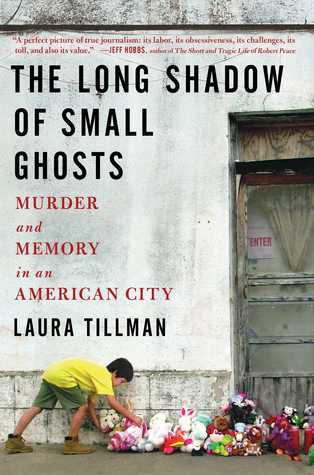Publisher: Scribner. April 5, 2016.
Pages: 256
Genre: Nonfiction
Source: Publisher
ADD TO GOODREADS
BUY FROM INDIEBOUND
BUY FROM BOOK DEPOSITORY
In Cold Blood meets Adrian Nicole LeBlanc’s Random Family: A harrowing, profoundly personal investigation of the causes, effects, and communal toll of a deeply troubling crime—the brutal murder of three young children by their parents in the border city of Brownsville, Texas.
With meticulous attention and stunning compassion, Tillman surveyed those surrounding the crimes, speaking with the lawyers who tried the case, the family’s neighbors and relatives and teachers, even one of the murderers: John Allen Rubio himself, whom she corresponded with for years and ultimately met in person. The result is a brilliant exploration of some of our age’s most important social issues, from poverty to mental illness to the death penalty, and a beautiful, profound meditation on the truly human forces that drive them. It is disturbing, insightful, and mesmerizing in equal measure. -Goodreads
This is a true crime book for people who don't read true crime. If you go in expecting a lot of details about the murder of three children by their parents or the court case, you're going to be disappointed. Rather, this is an unflinching look at class and poverty in America, and some of its subsequent effects on communities. It's like classy true crime with a social justice bent. But there is totally a chapter titled "Don't Read This Chapter before Going to Bed."
We invest dollars and moments in one place over another. We identify the lessons that might be learned by a new generation, celebrate certain leads and achievements, and damn others. And as we forget, we destroy. It is a silent violence.
Tillman's journey started as she reported on a building that people wanted torn down. The building where three children were killed by John Allen Rubio and their mother Angela. Tillman looks at both the poverty and the sense of community in Brownsville, Texas which is on the very southernmost point of the state. In this border town, drugs are a problem and so is unchecked mental illness. Rubio claims that they killed their children because he believed they were possessed by demons. It's dark and it's complicated. So Tillman starts to talk to Rubio in prison to hear how he speaks about the situation, and eventually she meets him in person. No perspective that could be taken on this crime is left unresearched. And Tillman's writing is so good, and she's so excellent on honing in on what's important, that we're not left with a bloated, dense piece of detail-heavy work. I'm not good at reading nonfiction, but this book was impossible to put down. Definitely a page-turner.
This book doesn't try to answer questions for us. It doesn't break down the crime and explain exactly what happened and why. It shows us the grey areas. The grey areas in why this horrific crime took place. How multiple internal and external forces could have led to this event, and events like it throughout the country. In addition to asking us to look at a murderer as a constantly changing human being, it asks us what we're going to do about it. When somebody is sentenced to death, who is responsible and what does it mean?
I hadn't thought that much about the death penalty before, at least not critically. I knew I should think about it. I knew that I felt pretty against it, but I hadn't looked at the why's of that feeling. I'm grateful that Tillman went to the extent of actually talking to a reporter who has seen 400+ executions. It gave me a whole lot to think about in regards to the reality of the situation that I hadn't thought of before. Like how the execution is "an intentional death of a healthy person made to look more like the mercy killing of a sick dog or cat." And how there are witnesses to the execution, and the family of the victim often feel disillusionment toward the experience. It's a lot to take in, and it's important to take in.
...Acts do not exist in isolation in our world, and we can't expect to repair the misconduct of the past tidily, believing our response to be contained. We are connected--invisibly, intricately, marvelously, tragically--and those connections cannot be willed away. It would be satisfyingly simple to see an act as abominable as murder cured or avenged by putting the perpetrator of that crime to death. But the killings continue. They amp up--into school shootings, terrorist acts, war that rage for decades. The question is whether one death addresses another, or whether they circle into a frenzy.
Tillman does an excellent job at presenting many different arguments (about the death penalty, and about other things). She doesn't taint or rework them with her own opinion. She just offers her own incredibly intelligent questions and thoughts after the fact. I swear, I just wanted to type up entire paragraphs of this book in place of a review. The Long Shadow of Small Ghosts urged me to be more thoughtful, analytical, and open to accepting the grey areas.

